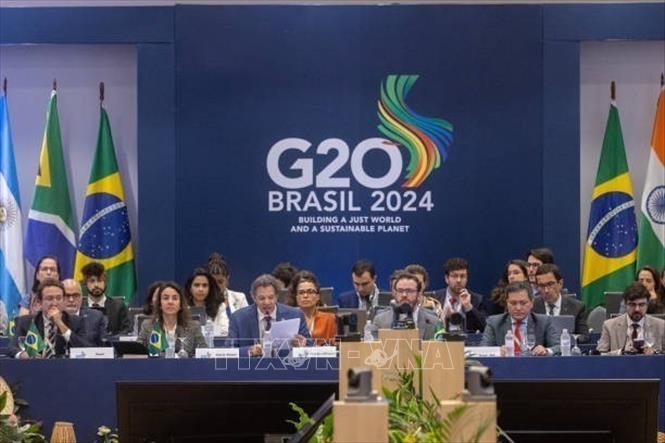The idea of taxing the super-rich still faces many challenges, as member countries of the Group of 20 leading developed and emerging economies (G20) have agreed to cooperate on this issue, but have yet to reach a specific agreement.

Compromise on thorny issues
The thorny issue of tax evasion by billionaires took center stage at the G20 Finance Ministers and Central Bank Governors Meeting in Rio de Janeiro, Brazil, on July 25-26. It is also a top priority for Brazilian President Luiz Inacio Lula da Silva during his tenure as G20 President in 2024. Lula da Silva had hoped the G20 would agree on a minimum tax rate for the wealthy elite, but the final statement only signaled a compromise among member countries that have differing views on the issue.
“With full respect for national sovereignty in tax matters, we will seek to cooperate to ensure effective taxation of ultra-high net worth individuals,” the joint statement said on July 26. “Wealth and income inequality undermine economic growth and social cohesion, and exacerbate social vulnerability.”
“Morally, the richest countries need to consider that our problem today is that we are progressively taxing the poor, not the rich,” said Brazilian Finance Minister Fernando Haddad.
The Brazilian government is now proposing a minimum 2% tax on billionaires, a top priority during its G20 presidency ahead of the group's summit scheduled for November 18-19.
The proposal to tax billionaires has divided the G20. France, Spain, South Africa, Colombia and the African Union support the initiative, while the US and Germany oppose it.
Responding to the above information, International Monetary Fund (IMF) Managing Director Kristalina Georgieva appreciated the G20's stance on "tax fairness", calling the decision to cooperate in taxing the super-rich "timely and welcome".
French economist Gabriel Zucman, author of a report on taxing the rich, welcomed the G20 decision, noting that for the first time in history, G20 member countries agreed that the way the super-rich should be taxed should be adjusted.
Many other economists have also responded positively to the G20's move. Greenpeace Brazil's Camila Jardim said the climate crisis is expected to cost trillions of dollars a year and it is absurd that ordinary people should bear the cost while the super-rich avoid paying taxes.
In addition, G20 finance leaders also agreed to work towards concluding a tax agreement targeting digital giants and multinational corporations “as soon as possible.” Several countries are currently working on the text of a digital services tax agreement aimed at creating a fairer tax system. The goal of the agreement is to require companies to pay a fair share of taxes in countries where they have no presence but generate profits by providing services.
Which forum is suitable?
While G20 finance leaders have agreed to work together to tax the super-rich, deeper disagreement remains over the appropriate forum to push this agenda.
Countries still have different views on whether to conduct negotiations on the above issue at the United Nations (UN) or through the Organization for Economic Cooperation and Development (OECD).
In an interview with Reuters on the sidelines of the G20 meeting, US Treasury Secretary Janet Yellen said she believed the OECD, which has led negotiations for a global corporate tax deal for the past three years, was better placed to handle talks on taxing the super-rich. "We don't want to see this issue moved to the UN," Yellen said.
Major developing countries have resisted the approach, according to an official familiar with the matter, who said Brazil should use its G20 presidency to push for discussion at both the UN and the OECD.
Some of the most vocal proponents of a global minimum tax on billionaires, including Nobel Prize-winning economist Joseph Stiglitz, argue that the UN is the appropriate forum for global tax cooperation.
“We call on G20 leaders to build on the progress being made at the UN and establish a truly democratic process to set global standards for taxing the super-rich,” said Susana Ruiz, Head of Tax Policy at Oxfam International.
Guilherme Mello, an official at Brazil’s Ministry of Finance, said the UN Framework Convention on International Tax Cooperation was a victory for the developing countries of the Global South (a group of countries in Africa, Latin America and developing economies in Asia). Still, Mello acknowledged that both the OECD and the UN are legitimate forums, and the current discussion on how to effectively tax the super-rich is a step forward, regardless of the forum.
Some observers remain skeptical about the possibility of a global billionaire tax targeting the world’s richest people. “It seems very difficult to make progress on this,” said a European official at the G20 meetings.